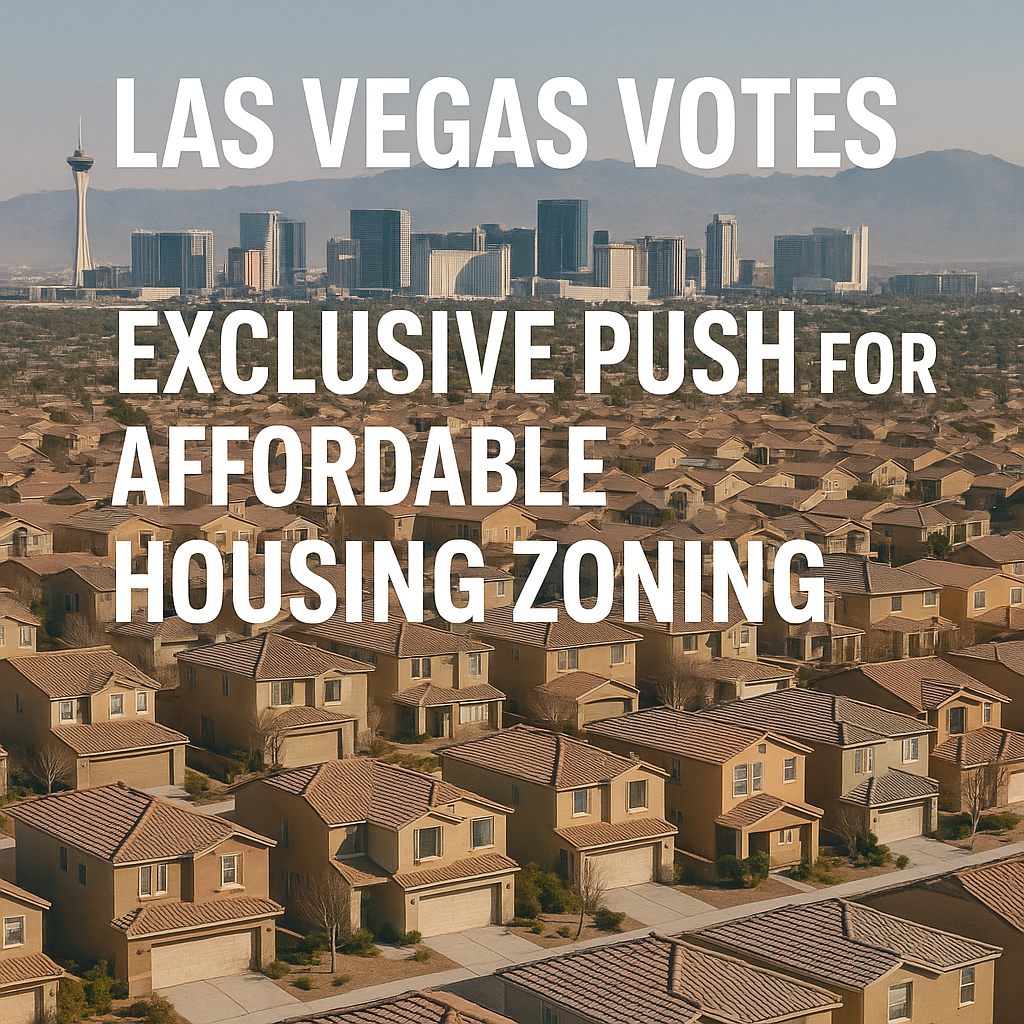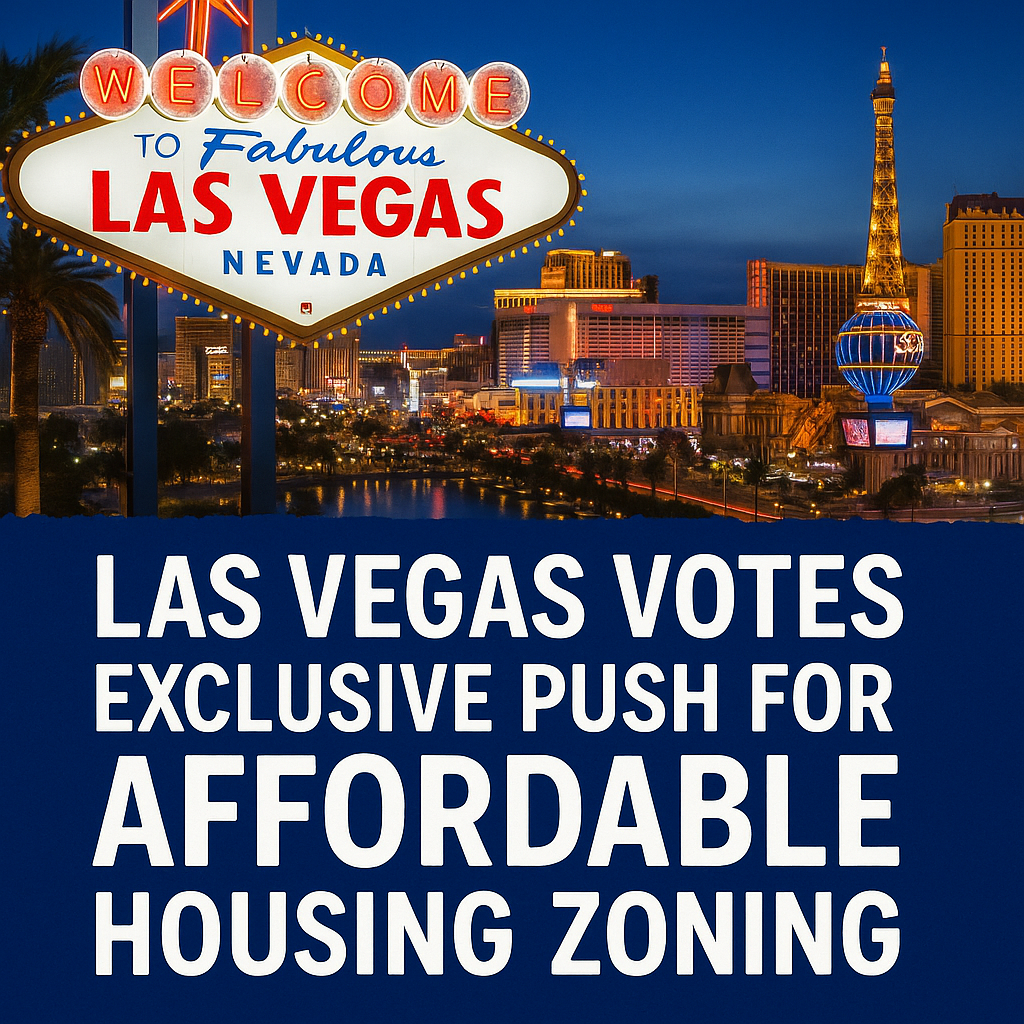Las Vegas Votes: Exclusive Push for Affordable Housing Zoning
Las Vegas Votes: Exclusive Push for Affordable Housing Zoning
Las Vegas votes are shaping the future of the city, particularly concerning the urgent need for affordable housing. In a time when housing prices are soaring and many residents struggle to secure stable, affordable accommodations, the recent push for zoning changes is both timely and critical. This article delves into the complexities surrounding the city’s initiative to rezone areas for affordable housing, analyzing perspectives and sentiment from diverse sources.
The Context of Affordable Housing in Las Vegas

The affordability crisis in Las Vegas is a matter of growing concern. According to data shared by local news sources, Las Vegas ranks among the most challenging markets in the nation for individuals and families seeking affordable housing. High demand and escalating prices have left many in precarious living situations. As a result, the City Council’s recent efforts to set the groundwork for affordable housing through zoning changes reflect a keen acknowledgment of this escalating crisis.
Community Engagement: A Diverse Array of Voices
At a recent council meeting, local residents made their opinions known, presenting a diverse range of views on the proposed zoning changes. Supporters argue that this initiative is a crucial step towards addressing the affordability crisis. As highlighted by sources from 8 News Now, residents advocated for greater transparency in the planning process, emphasizing that inclusive development is essential for building a community that serves everyone, particularly low-income families.
However, not all feedback has been positive. Some community members raised concerns regarding potential changes to neighborhood aesthetics and property values. Critics fear that the introduction of high-density affordable housing could disrupt the fabric of established communities. An article from the Las Vegas Review-Journal noted that these sentiments are shared widely, particularly among homeowners who worry that additional housing could lead to overcrowding and strain on local resources.
Weighing Perspectives: The Road Ahead
As this debate unfolds, it becomes clear that there is a complex web of opinions surrounding Las Vegas’s initiative for affordable housing zoning. While a significant portion of the community sees the need for reform, some remain cautious about the implications it may have. This division highlights an essential aspect of urban policy-making: the need for a balanced approach that respects existing residents while addressing the urgent need for affordable living options.
The city’s decision-makers face the challenging task of navigating these conflicting views. They must weigh the benefits of creating more diverse and accessible neighborhoods against the potential downsides of altering existing community dynamics. As discussions continue, it is becoming increasingly vital that the city engages meaningfully with all stakeholders, ensuring that voices from every corner of the community are heard and considered.
The Path Forward: Collaboration and Consultation
Moving forward, the city of Las Vegas will have to embark on a path of careful consultation and collaboration, not only with residents but also with developers, urban planners, and advocacy groups. A balanced approach that prioritizes affordability without compromising community integrity is essential. Moreover, transparent communication is key in developing a united front where all parties can work toward common goals.
This interaction will not only enhance the likelihood of successful zoning changes but will also help build trust between residents and city officials. Efforts to integrate feedback from community meetings and online forums will be critical in crafting a zoning framework that reflects the unique character of each neighborhood while leading to the development of affordable housing.
Conclusion: The Future of Affordable Housing in Las Vegas
Ultimately, the current push for affordable housing zoning in Las Vegas represents a critical juncture for the city. By fostering an inclusive environment for discussion and planning, Las Vegas can not only address immediate housing needs but also pave the way for a future where all residents have access to safe and affordable housing options. As the city moves toward a vote on the proposed changes, the importance of balanced perspectives will be more crucial than ever. The power of collective input can lead to a more equitable community, one that welcomes growth while respecting the history and values of its residents.
In this dialogue between progress and tradition, the votes cast in the upcoming weeks will undoubtedly reverberate throughout the city for years to come, signaling its commitment to ensuring that Las Vegas remains a livable city for all.





